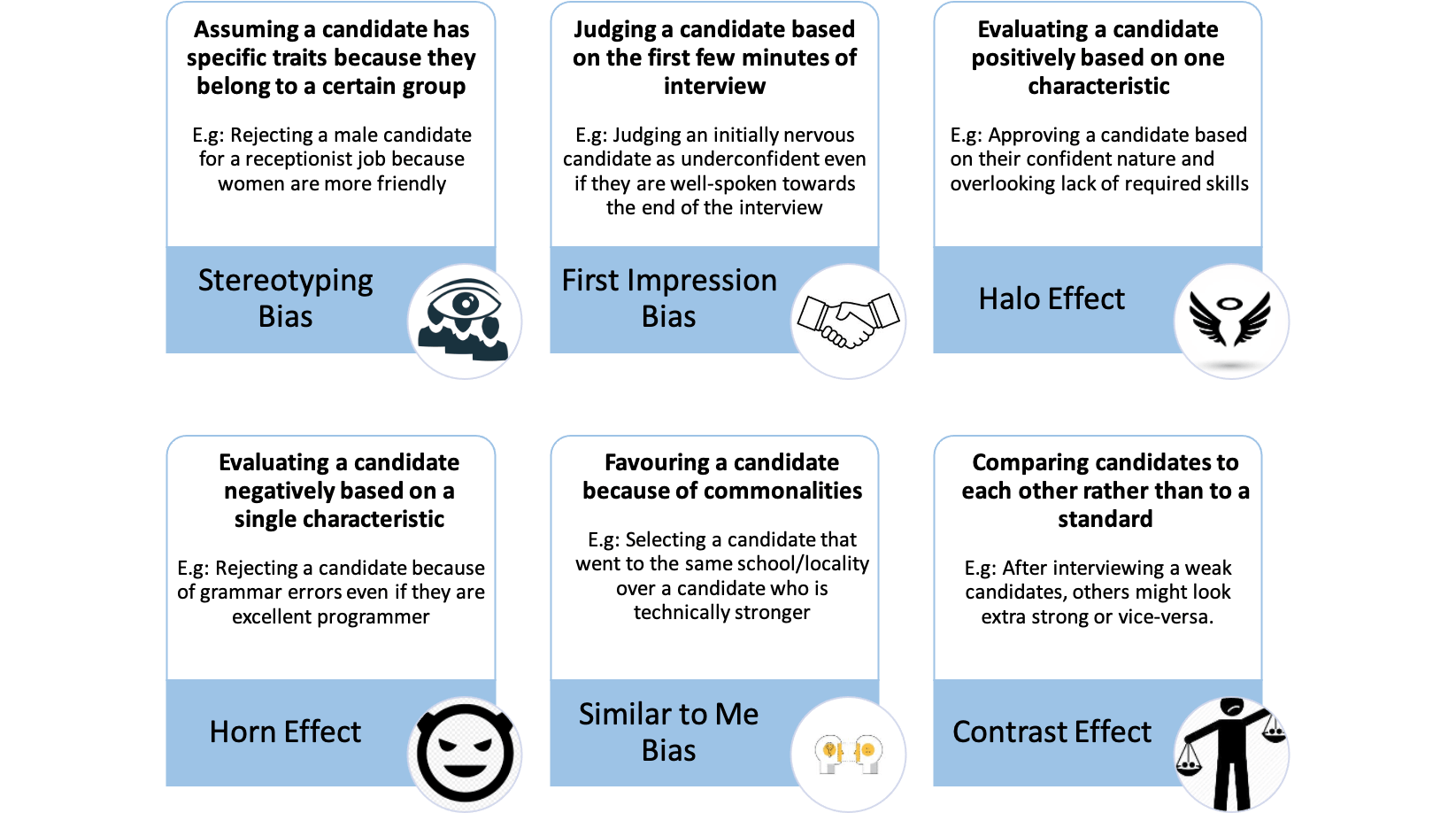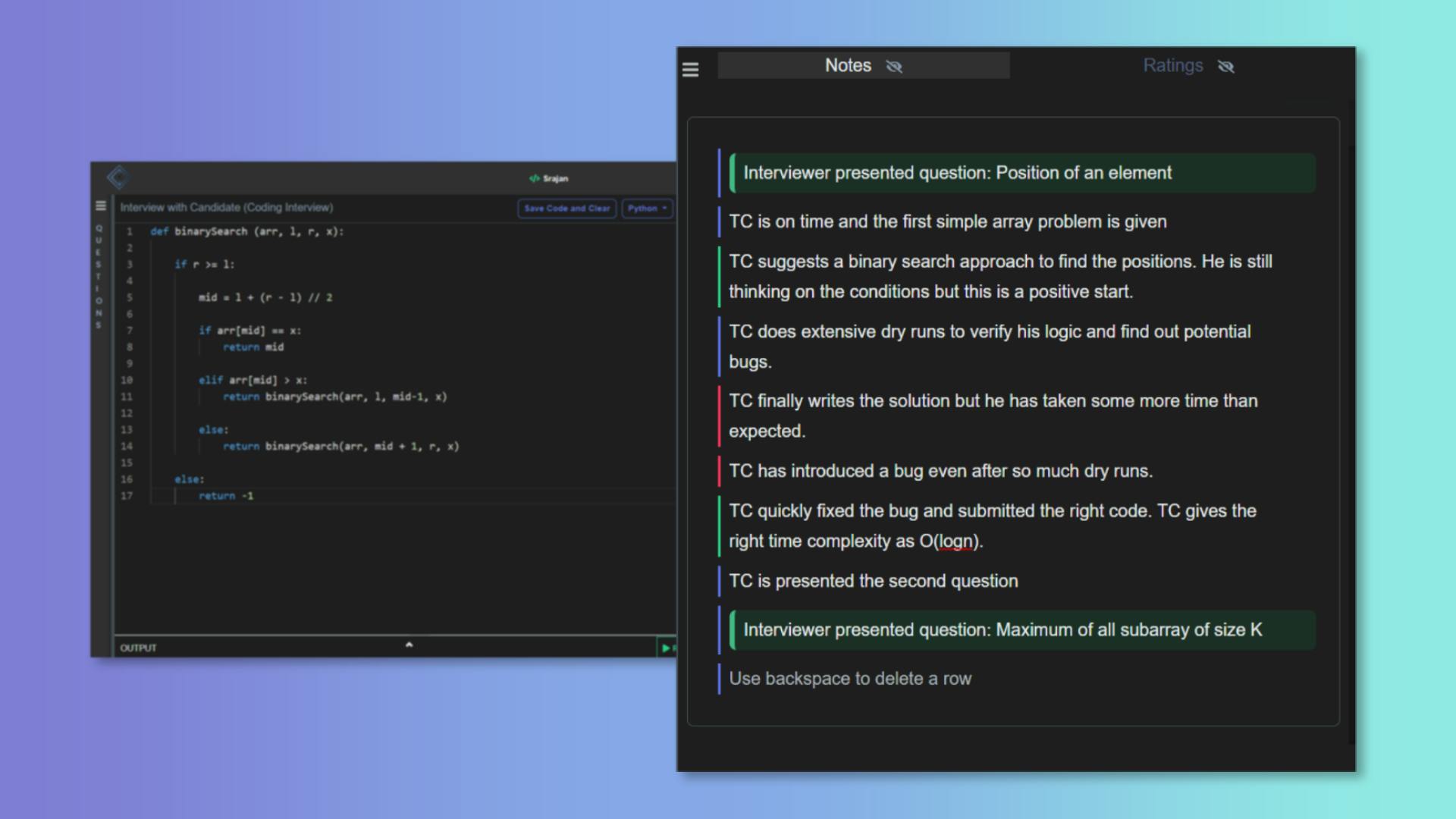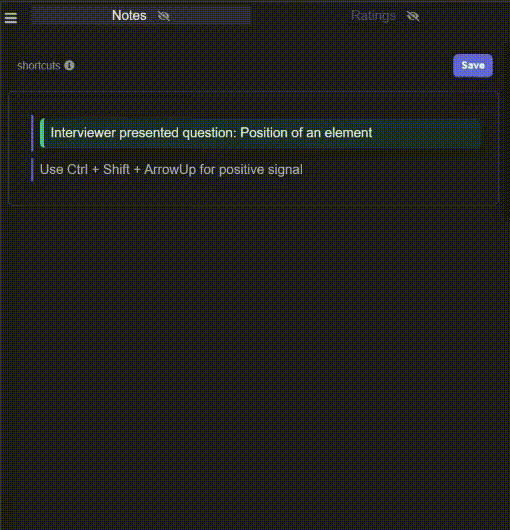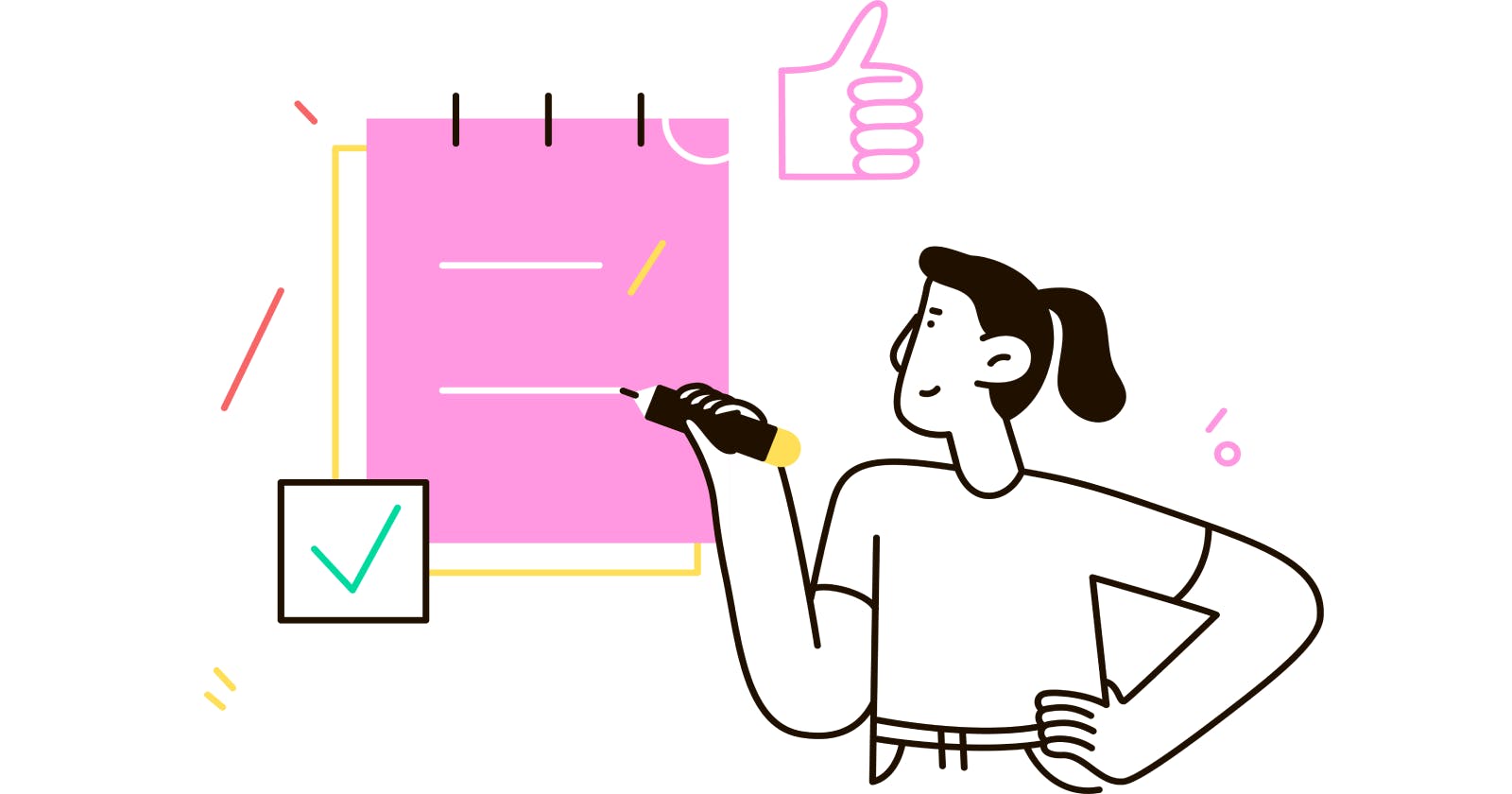Interviewing is hard —and this includes both conduction and evaluation. Taking notes during the interview helps us avoid biases and make data-driven and accountable evaluations. With meetcolab's in-built notes taking feature, you can take and share notes very easily.
In this post, I wanted to go over how to write the interview feedback and use meetcolab to make sure we are making the right decision as an interviewer.
Why is interview feedback important?
Make the right decision
As human interviewers, we suffer from a lot of inherent biases.
 To fix these biases, we first need to acknowledge them and not deny them:
To fix these biases, we first need to acknowledge them and not deny them:
“Real knowledge is to know the extent of one’s ignorance”
Writing detailed interview feedback helps us organize our thoughts, reason on facts rather than impressions, and avoid common interviewer biases.
Build and Improve Calibration
Written interview feedback helps interviewers understand each other’s way of evaluation, calibrate and improve as an interviewer with time. Reading feedback written by other interviewers has often taught me how to extract signals I was missing earlier or interesting questions I could have asked. This ends up being crucial in building a calibrated pool of interviewers in a company.
Enhanced insights for Leadership
One of the key responsibilities of hiring managers and executives is to build a great team and for this, they need to understand the hiring decisions made within the company over time. Well-written interview feedbacks lays down the fundamental blocks for building a great team.
Now I would walk you through how you can use meetcolab to take meeting notes and unlock your true potentials as an interviewer 😎
Comprehensive Note Taking Module

Why is a handy note taking module, like meetcolab, important while taking remote interviews?
You can easily maintain your interview timeline which can later provide valuable insights about the interview.
Quickly jot down plus and minus points, and interesting tidbits during the interview with appropriate signs.
Any time a note is added, a time-stamp is also attached creating an easy to follow timeline. Later this timeline can be reviewed to figure out where a candidate was stuck.
Review the timeline later for positive and negative signals during the interview, and then make an informed decision
View one of our sample feedback to get better insights into how to write a comprehensive feedback.
💡 Fun Story : Our interviewers were fed up of taking notes on paper or google docs, while conducting technical interviews. So we came up with the in-built feature of taking notes
Super Easy Keyboard Shortcuts
 A demo of taking notes using keyboard shortcuts on meetcolab
A demo of taking notes using keyboard shortcuts on meetcolab
We all can agree that keyboard shortcuts are super awesome 😎. They are easy and gets our job done faster. It becomes even more important while taking notes during a technical interview considering the time constraints and limited accessibility to other modes for taking notes. These shortcuts can improve your efficiency and you can take better notes in less amount of time.
- ctrl + shift + ↑ : Positive signal
- ctrl + shift + ↓ : Negative Signal
- ctrl + shift + / : Neutral Signal
- enter : Create a new row
- backspace : Delete a row
- tab : Jump to next row
- shift + tab : Jump to previous row
Tips on taking notes during a meeting
Take signals during the interview : Writing short notes about signals gathered during the interview helps you evaluate positive and negative signals later.
Keep record of time : At the end this will help you in evaluating how much time the candidate took in each question
Take as much notes as possible : The more information you have about the interview, the easier it gets for you to evaluate.
Be concise and write in your own voice : It's okay to mention areas where you were not able to extract relevant signals
"Interviewing a candidate is as much an art as it is a skill"
Read my previous blog on "Art of conducting technical interviews " to get deeper insights.
Thank you for reading. Let me know in the comments if you have any feedback and suggestions on writing a great interview feedback.

